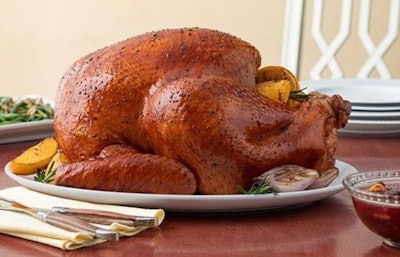
Seaboard Corporation reported another loss on its investment in the turkey sector, but saw a return to profitability in its pork business during fiscal year 2021.
The company, which is a 50% non-controlling owner of Butterball, on February 15 reported its financial information for the fiscal year, which like the calendar year, ended on December 31.
Results on Butterball
Seaboard, in a form 10-K on its investor relations webpage, reported a $20 million loss on affilates for its investment in Butterball. This loss is double the $10 million loss reported at the conclusion of fiscal year 2020. However, it is a slight improvement from the $21 million loss experienced during 2019.
“The increase in loss from affiliate for 2021 compared to 2020 was primarily the result of lower sales volumes and higher live and plant production costs due to increased feed and labor prices, partially offset by higher sales due to increased prices,” the company stated.
Three months ago, Seaboard expressed optimism that its investment on Butterball would be profitable during the fourth quarter of 2021.
Seaboard did not offer guidance for 2022, citing the unpredictability of the market prices for turkey products, the cost of feed or the ongoing impacts of the COVID-19 pandemic.
Pork segment results
Seaboard, for its pork segment, reported a net income from affiliates of $3 million in 2021, rebounding from a loss of $9 million in 2020. It also reported net sales of $2.5 billion in 2021, up from net sales of $1.9 million in 2020.
“Net sales for the pork segment increased $540 million for the year ended December 31, 2021 compared to 2020. The increase was primarily the result of higher prices of pork products sold, and to a lesser extent, higher prices and volumes of market hogs and higher biodiesel prices, partially offset by lower volumes of pork products sold,” the company stated.
Seaboard operates some of its pork facilities through partnerships with Triumph Foods.
Like it did with the turkey business, Seaboard declined to offer guidance on 2022, citing similar reasons, as well as uncertainties about the cost of third party hogs or biodiesel prices.


















